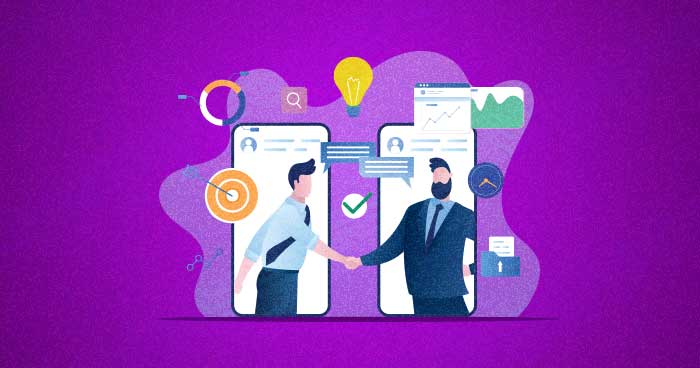In highly competitive markets, closing sales requires more than just effective pitching; it demands strategic, advanced techniques that differentiate your offer and appeal to discerning clients. Here’s a comprehensive guide to advanced techniques for closing sales when competition is fierce.
Understanding the Competitive Landscape
Conduct Comprehensive Market Analysis
Analyze Competitors: Understand your competitors’ strengths, weaknesses, and sales strategies. Identify gaps or weaknesses in their offerings that you can address.
Market Trends: Stay informed about industry trends and shifts. Use this knowledge to position your offer as a solution to current market challenges or opportunities.
Develop a Unique Value Proposition
Differentiation: Clearly define what sets your offer apart from competitors. This could include unique features, benefits, or approaches that provide additional value.
Tailored Solutions: Customize your offer to meet the specific needs and preferences of your target market, addressing pain points that competitors may overlook.
Building Strong Relationships and Trust
Leverage Consultative Selling
Needs Assessment: Engage in a consultative approach by thoroughly understanding the client’s needs, challenges, and goals. Use this information to tailor your solution.
Solution-Oriented Conversations: Focus on how your offer solves the client’s problems and meets their objectives. Position yourself as a trusted advisor rather than just a salesperson.
Build and Nurture Relationships
Personalized Interaction: Invest time in building personal relationships with potential clients. Show genuine interest in their business and challenges.
Follow-Up Strategy: Implement a robust follow-up strategy to maintain engagement and demonstrate your commitment. Regular check-ins and personalized communication can strengthen the relationship.
Demonstrating Value and ROI
Use Data and Analytics
Evidence-Based Selling: Provide data and analytics that demonstrate the potential ROI of your offer. Use case studies, testimonials, and performance metrics to support your claims.
Performance Benchmarks: Offer benchmarks or projections that show how your solution performs compared to competitors or industry standards.
Offer Proof of Concept
Pilot Programs: Provide a trial or pilot program that allows clients to experience the benefits of your offer before committing fully.
Demonstrations and Workshops: Conduct live demonstrations or workshops to showcase the practical application and effectiveness of your solution.
Leveraging Advanced Sales Techniques
Implement Strategic Pricing Strategies
Value-Based Pricing: Use value-based pricing strategies to align your offer’s price with the perceived value and benefits to the client.
Tiered Pricing: Offer tiered pricing options that provide different levels of features or services, allowing clients to choose based on their needs and budget.
Utilize Social Proof and Referrals
Client Testimonials: Showcase testimonials from satisfied clients who have achieved positive results with your offer. Highlight success stories that resonate with potential clients.
Referral Programs: Encourage existing clients to refer new prospects. Implement referral programs that reward both the referrer and the new client for successful conversions.
Enhancing Negotiation Skills
Master Negotiation Techniques
Preparation: Be well-prepared with knowledge of your offer, competitive landscape, and the client’s needs. Anticipate potential objections and prepare responses.
Flexibility: Be willing to negotiate terms and conditions to meet the client’s requirements while ensuring that the deal remains profitable.
Create Win-Win Scenarios
Value Exchange: Focus on creating win-win scenarios where both parties benefit. Explore options for additional value or incentives that can close the deal.
Mutual Goals: Align your offer with the client’s strategic goals and objectives. Show how the partnership will benefit both parties in the long term.
Leveraging Technology and Tools
Use CRM Systems and Sales Tools
CRM Integration: Utilize CRM systems to track interactions, manage leads, and analyze sales performance. Use data to inform your sales strategy and identify opportunities.
Sales Automation: Implement sales automation tools to streamline repetitive tasks, manage follow-ups, and ensure timely communication with prospects.
Leverage Data-Driven Insights
Predictive Analytics: Use predictive analytics to forecast sales trends and identify high-potential leads. Leverage this data to prioritize efforts and optimize sales strategies.
Behavioral Insights: Analyze behavioral data to understand client preferences and tailor your approach accordingly. Use insights to personalize your pitch and address specific needs.
Closing sales in competitive markets requires advanced techniques that focus on differentiation, relationship-building, and demonstrating value. By conducting thorough market analysis, developing a unique value proposition, leveraging consultative selling, and using data-driven insights, you can effectively stand out from the competition. Implementing strategic pricing, utilizing social proof, mastering negotiation skills, and leveraging technology will further enhance your ability to close deals successfully. With these advanced strategies, you can navigate competitive landscapes and achieve sales success.



















.jpg)